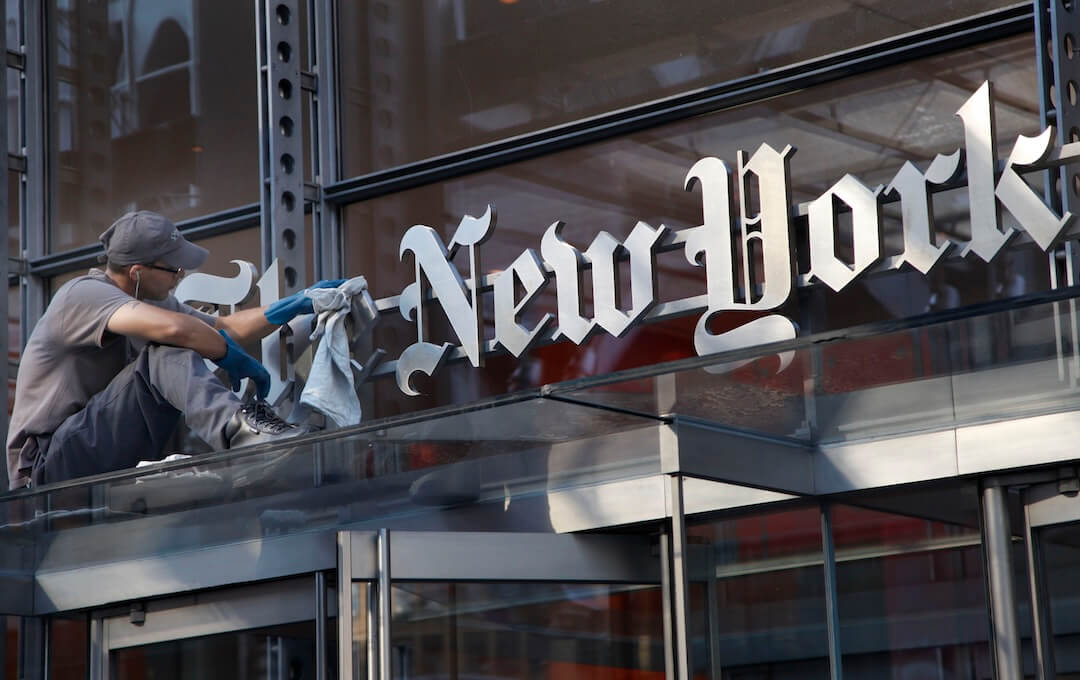A new report from the Duke Reporters’ Lab offers a snapshot of the evolving fact-checking ecosystem around the world.
On Thursday, the Reporters’ Lab published its fifth annual census of fact-checking operations and found that, over the past four years, fact-checking outlets have more than tripled. This year’s count is nearly a third larger than last year’s — up to 149 projects from 114. (Disclosure: The Reporters’ Lab helps pay for the Global Fact-Checking Summit.)
In the report, Mark Stencel and Riley Griffin explain the changes:
While some of that year-over-year change comes because we discovered established fact-checking ventures that we hadn’t yet counted in our past surveys, we also added 21 fact-checking projects that launched since the start of 2017, including one — Tempo’s “Fakta atau Hoax” in Indonesia — that opened for business a month ago.
Even when accounting for the addition of existing operations to its database, Stencel, co-director of the Reporters’ Lab, told Poynter in an email that the census’ results bode well for the future growth of fact-checking. He noted that elections often serve as a catalyst for new political fact-checkers.
“Two-thirds of the year-over-year growth since the start of 2017 came from the 21 fact-checking projects that actually launched since the start of 2017. And much of the rest came from fact-checkers that started the previous year — including eight in Asia and nine in Europe,” he said. (Here’s an explainer about how the Reporters’ Lab decides which projects to include.)
“The community building of the past few years — the growth of the Global Fact summits, the launch (of the) International Fact-Checking Network and its certification process, our Share the Facts project — have made it much easier for us to find fact-checkers, and for them to find us.”
Growth in the U.S. has been slower than in years past. For the first time since it started keeping track of fact-checkers in 2014, the Reporters’ Lab found that Europe had surpassed the U.S. with its number of active fact-checking outlets, 52 to 47.
The latest tally also reveals remarkable staying power among fact-checking projects. In the U.S., websites like Snopes and Factcheck.org have been around for more than a decade.
Based on the 143 projects whose launch dates we know for certain, 41 (29 percent) have been in business for more than five years. And a diverse group of six have already celebrated 10 years of nearly continuous operation — from 23-year-old Snopes.com, the grandparent of hoax-busting, to locally focused “Reality Checks” from WISC-TV (News 3) in Madison, Wisconsin, which started fact-checking political statements in 2004. Some long-term projects have occasionally shuttered between election cycles before resuming their work. And some overcame significant funding gaps to come back from the dead.
The average fact-checker has been around for four years, according to the report. And Stencel said that’s significant.
“The staying power of so many of the fact-checkers is impressive, given how hard it is for any new project in media to find its audience,” he said.
At the same time, several organizations are changing the way they do business. While still unusual, albeit growing, in the U.S., nonprofit ownership is rather common abroad.
In the U.S. … most fact-checkers (41 of 47, or 87 percent) are directly affiliated with newspapers, television networks and other established news outlets. The opposite is the case outside the U.S., where a little more than half of the fact-checkers are directly affiliated (54 of 102, or 53 percent).
Financially, fact-checkers are supporting themselves in more diverse ways than in years past, according to the report. Many use membership programs, individual donations and syndication to pay the bills, while fact-checking outfits in five countries are now receiving money from Facebook to flag hoaxes on the platform.
To Stencel, continents underserved by fact-checking are relatively obvious: Africa with only four projects, Australia with three and South America with 15 — compared to 53 in North America, 52 in Europe and 22 in Asia. But, when looking at the variety of fact-checkers included in the Reporters’ Lab database, another thing struck him as odd.
“I'm also surprised we don't have more topical fact-checkers — like Climate Feedback at the University of California Merced and from Agence Science-Presse in Montreal,” he said.
Interestingly, fact-checking competition has also grown around the world. According to the report, the number of countries with more than one active fact-checker doubled over the past year — from 11 to 22. The U.S., Brazil, France, the United Kingdom and South Korea lead the pack with the most active fact-checking projects.
But to Stencel, the most important part of the report is the ability for fact-checking organizations to persevere once they’ve been established.
“Hell, most restaurants close in their first year of business, and we have at least half a dozen fact-checkers who've been in business for more than a decade,” he said. "So the public must appreciate what they're serving up."







